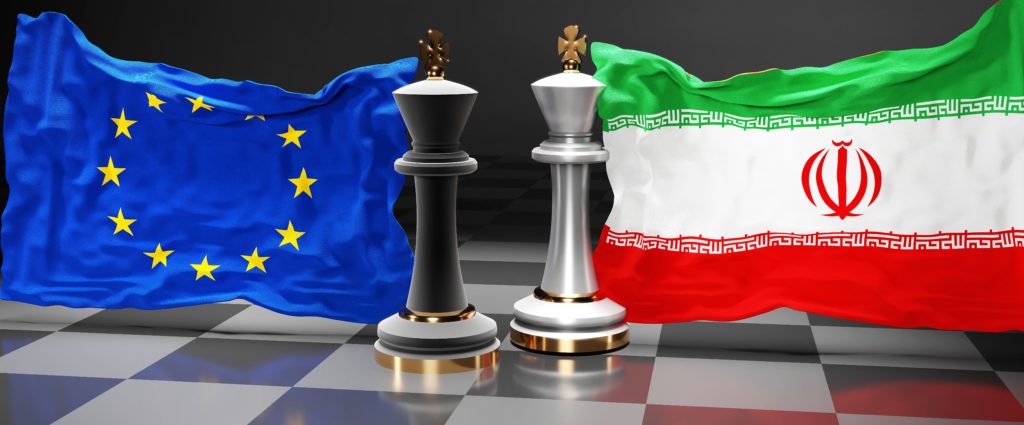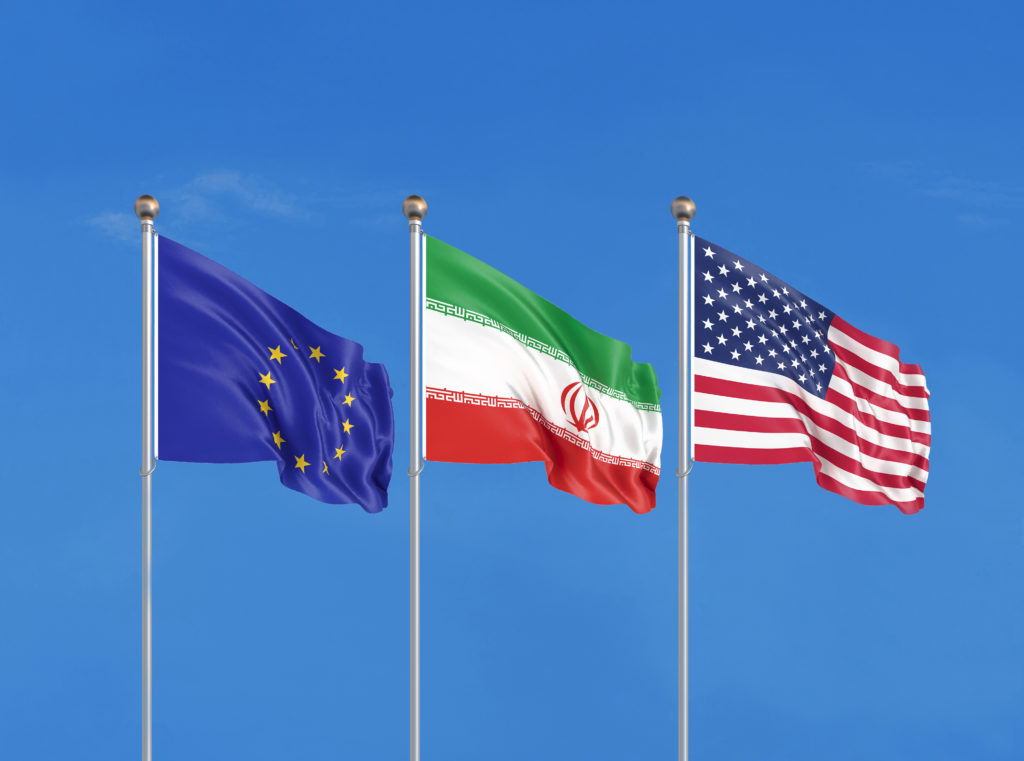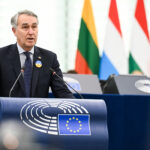The French economist Thierry Coville, researcher at IRIS in Paris, discusses the EU’s role in negotiations with Iran.
Mr Coville, does the European Union’s foreign policy need stricter criteria and for example halt diplomatic relations with regimes such as Iran’s?
I am quite sceptical about the idea that the EU should not have relations with a country that does not meet its human rights standards. Iran is a country in transition. Closing the borders to Iran would be counterproductive because the EU would leave Iranian civil society alone in the face of repressive power, which is dangerous. We must stop boycotting of Iran, that is the worst solution.
How can the EU to support the people of a country like Iran against a repressive government?
I am opposed to the idea of helping civil society against the regime. The question we are dealing with is the balance of power, as is the case in many countries. In my opinion, the more opportunities are given to civil society to develop, for example by helping the economic sector, the more the private sector and therefore civil society will gain in power.
“Closing the borders to Iran would be counterproductive because the EU would leave Iranian civil society alone”
Former Iranian President Hassan Rouhani’s plan, which was shattered by Donald Trump’s exit from the nuclear deal (JCPOA), was to develop the private sector in Iran. His chief of staff was the former president of the Iranian Chamber of Commerce and Industry. Given everything that has happened since the Islamic Revolution, it is impossible to have a “democratic” revolution in Iran as the West would like to see it. Greater political openness can only be achieved through the economy.
#Iran’s regime uses foreign detainees as bargaining chips for money or influence in negotiations with the West.
— Arash (@arashcaviani) January 17, 2022
The re-arrest of #French-Iranian academic Ms. Adelkhah is only to put pressure on France to gain more political advantage in the nuclear talks.https://t.co/ZeCDYjZe9n
Economic progress helps Iranian society. The educated middle class in Iran is the bearer of a political project. The EU must not act “American-style” by saying that it will help civil society get rid of the regime. Yes, there is a demand for democracy and the rule of law in Iranian society, but I think that the path towards there will be through cultural, sporting and economic exchanges.
If the EU trades with Iran, does that not put more money in the coffers of the regime rather than help the Iranian middle class?
It is clear that part of the financial benefits will contribute to the financing of the repressive apparatus. But in which country is this not the case? If we apply that as the benchmark, we must stop having economic relations with a large part of the Middle East, Central Asia, Africa, but also certain developed countries. Groups close to the regime will benefit from increased government revenues. Yet I don’t think that this will mean more or less repression.
With regard to the nuclear programme, should the European Union use its trade and economic policy instruments to exert pressure on Iran? That is what the Americans have done…
American policy is exactly what should not be done. Since 2018, the United States have applied sanctions of an extraterritorial nature. In my opinion that was scandalous. At the talks in Vienna, the Europeans are playing the role of an intermediary between the Americans on the one hand and Iran on the other, with the goal to lift extraterritorial sanctions that primarily affect European companies.

We must be able to sign an agreement, respect it and not give in. At the time, we did not want to enter into a trade war with the Americans. But this experience should serve as a point of reflection for Europe so that it does not repeat itself. With respect to what French President Emmanuel Macron termed “sovereign autonomy”, this has been catastrophic.
What should distinguish the sanctions policy of the Europeans from that of the Americans is proportionality. The US sanctions have been characterized by their violence, not only for the regime but for the entire Iranian population. As a result of US sanctions, millions of Iranians have moved from the middle class into poverty. I hope that Europe will not enter into this type of policy.
How can the EU have an “autonomous strategy” in relation to other players, as proposed by President Macron? Can it really act independently of the United States? Or shouldn’t it be a close ally of the US?
I was very struck by the acceptance by European officials of what has happened. The Americans said to either stop trade with Iran or risk losing access to the US market. One could have imagined that the EU, which represents the world’s largest single market, would have stood up to the United States. But there was no political will, no attempt by the Europeans to say no. We did not want to enter into a trade war with the Americans, for fear that Trump would overreact.
Is it realistic to think that there can be a return to the 2015 JCPOA agreement?
This agreement has been fully respected by Iran. The United States exited illegally under international law since the agreement was strengthened by a United Nations Security Council resolution. The situation has changed but who is to blame? Iran’s nuclear program has grown, they have had greater technological mastery. In Iran, the radicals are anti-American, anti-Western. With what has just happened, they have no confidence in the United States or Europe.
We can envisage an agreement that holds if the EU and the United States keep their commitments. After that, it will be possible to talk about other matters with Iran. But first of all, the United States must return to this agreement to defuse tensions.
Are negotiations with a president like Ebrahim Raisi possible? With his past and the crimes attributed to him, can he be a trustworthy interlocutor?
Negotiations on national security issues are not led by the Iranian president. Already in the 2015 agreement, it was the Supreme Leader, Ayatollah Ali Khamenei, who supervised and gave his consent. He has always threatened to leave the agreement, but he has not done so yet. I think Khamenei wants to stay in the agreement. Iran stuck to the deal for a year (May 2018 to May 2019) without doing anything all the while its economy collapsed.
Iran only gradually exited the agreement, from May 2019 onwards, because they considered that the situation was no longer tenable and that it was necessary to change the balance of force in their favour. Politically, the radicals were starting to get angry. The Supreme Leader has just given a speech where he says that Iran must be able to negotiate, even with its enemies. That may be a sign that Iran still supports the 2015 deal and really wants to negotiate for the US to return to it.
Will Iran keep its word on a future deal?
On this issue, Iran does not consider itself at fault. Today, the regime is asking for guarantees, and I do not know how the United States will be able to give them. Iran’s great fear is that the U.S. will return to the deal and come out of it after a new election of a Republican president.

Concretely, with the present political climate in Iran, the only realistic strategy is for the United States to return to the agreement. In 2001, when the US attacked the Taliban, Iran gave them maps for where the Taliban’s military bases were located. Iran knows how to be pragmatic when it is in its self-interest. Iranian leaders have been very influenced by the war with Iraq and regarded ISIS as a vital threat. We can talk to them. What Obama did on nuclear power, we can do on other subjects. We must stop with this idea of a hegemonic Iran that cannot be trusted.
So, is an agreement possible?
There is some optimism, but the situation remains complicated. The United States and Iran each want to give the impression that they will emerge “victorious” from these negotiations. Iran wants to lift as many sanctions as possible, even those not related to nuclear power. The US wants Iran to give guarantees to return to the 2015 situation.
There are signs that Iran’s position is moving towards more pragmatism. The “radical” newspapers in Iran are talking about negotiations that are moving in the right direction.
Can the radicals keep their credibility if they negotiate with the West?
The advantage is that today in Iran, all the powers are in the hands of the radicals. They are the ones who can make peace because. If they decide to make peace with the United States despite their hatred of it, no one is going to accuse them of softness. Rouhani had to take the blame when he negotiated with the Americans.
Can Europe be a leader in these negotiations? What advice would you give the EU to rebuild trust?
Europe seems to play a role that is too “coordinated” with the American strategy. In the Iranian press, France is perceived as again taking the role of “bad cop” which [then Foreign Minister] Laurent Fabius took during the latest negotiations. We must not forget that it was primarily Trump’s exit from the agreement that weakened the 2015 agreement.
If the EU wants to facilitate an agreement allowing the return of the United States to the JCPOA, we must be less naïve about the extraterritorial nature of US law. After the 2015 deal, many European companies went to Washington to see if they could continue trading with Iran. This was humiliating for Europe.
Europe needs to realise that European companies must respect European, not American law. And the question of the extra-territorial application of US law goes beyond the case of Iran. Already, Europe is directly affected by this in its economic relations with Russia and it could be directly affected in the future in its relations with China, given the growing geopolitical tensions between the United States and that country.
Interview: Michael Thaidigsmann/Hélorie Duval, EU Watch

Thierry Coville (born in 1961) is a French economist and researcher at the Institute of International and Strategic Relations (IRIS) in Paris since 2007. He teaches macroeconomics, financial macroeconomics, short-term economic analysis and geopolitics. Thierry Coville has carried out research on the Iranian economy and society (among others, “Iran, the invisible revolution”).





